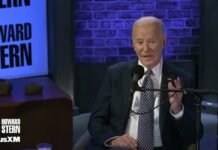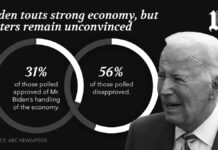Amidst the buzz surrounding Brazilian President Luiz Inácio Lula da Silva’s China visit that began on April 12, the leaders of both countries have signed more than 20 new bilateral agreements.
On the surface, the trip was a run-of-the-mill diplomatic visit. However, some say it underscores an ongoing deprioritization of relations with the United States.
China is Brazil’s largest trade partner, and both nations operate as cornerstone members of the trade bloc known as BRICS. This alliance also includes Russia, India, and South Africa. Members of the trade bloc openly share a desire to displace the U.S. dollar in trade and as a global reserve currency.
Since the return of left-wing Lula to Brazil’s helm, U.S. officials and analysts have raised concerns over the South American country’s policy shift in favor of Beijing and other authoritarian regimes.
It started with Lula’s welcoming of Iranian warships on Feb. 26. This was promptly followed by the March 29 announcement that Brazil would begin using the Chinese yuan instead of the U.S. dollar in trade transactions.
During a Senate Foreign Relations Committee hearing last month, Sen. James Risch (R-Idaho) expressed alarm over Brazil’s overarching cooperation with what he called “maligned foreign influences,” including China.
Brian Nichols, assistant secretary of state for Western Hemisphere Affairs in the U.S. Department of State, said in the same hearing that he’s “absolutely concerned” about China’s heavy investment.
Part of the Brazil-China arrangement includes using the Beijing-backed New Development Bank (NDB) as a yuan clearing facility. The goal is to boost the volume and strength of China’s yuan in the Americas.
While in Shanghai, Lula oversaw the inauguration of Dilma Rousseff—his former chief of staff and a 1960s Marxist guerilla fighter—as the new head of the NDB. Rousseff served as Brazil’s president after Lula starting in 2011, but was impeached by congress in 2016 for budget mismanagement.
The NDB was created under Rousseff’s watch, so her appointment as the head of the NDB on April 13 was the cherry on top of policy decisions that have left Western officials spinning in recent months.
Analysts say Brazil moving away from the U.S. dollar and courting authoritarian regimes demonstrates the prioritization of BRICS, particularly China, ahead of its relationship with the United States.











































